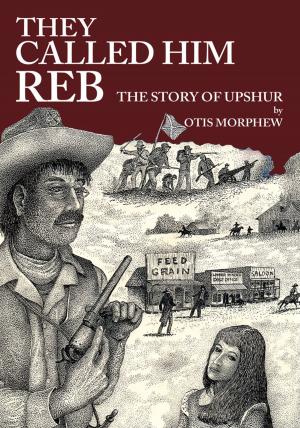| Author: | Ethel Erickson Radmer | ISBN: | 9781475910094 |
| Publisher: | iUniverse | Publication: | April 11, 2012 |
| Imprint: | iUniverse | Language: | English |
| Author: | Ethel Erickson Radmer |
| ISBN: | 9781475910094 |
| Publisher: | iUniverse |
| Publication: | April 11, 2012 |
| Imprint: | iUniverse |
| Language: | English |
For Ethel Erickson Radmer, a child of the 1930s, life in Wisconsin was an adventure filled with imagination, fun, and curiosity. Hers was a simple life, without computers and cell phones. It was a time when people in a small town dropped in on each other to visit and paid their bills in person. It was a time when folks honored courtesy and neighborly affection. If you knew someone was in the hospital, you brought them flowersfrom your own garden.
Ethel grew up in a railroad town that bustled with supplies and troops for World War II. To a small girl from a small town, a Green Bay & Western Railroad passenger car represented nothing short of freedom. But Ethel found joy in the simple thingsa playground for roller skating a golf course made just for picnics and sled-ding (and swinging clubs) nearby farmland and barns to explore and a meandering river to quiet her heart.
It was a simpler time, but Ethel Erickson Radmer was no simple girl.
Walking the Rails is everything a good memoir should begenerously detailed, disarmingly frank, and emotionally moving. With wit, irony, and generosity of spirit, Ethel Radmer has woven a heartwarming and lush tapestry of growing up in a loving American family during the difficult days of the Great Depression, World War II, and its aftermath.
Dave Wood, past vice-president of the National Book Critics Circle, former book review editor of the Minneapolis Star Tribune, and memoirist
For Ethel Erickson Radmer, a child of the 1930s, life in Wisconsin was an adventure filled with imagination, fun, and curiosity. Hers was a simple life, without computers and cell phones. It was a time when people in a small town dropped in on each other to visit and paid their bills in person. It was a time when folks honored courtesy and neighborly affection. If you knew someone was in the hospital, you brought them flowersfrom your own garden.
Ethel grew up in a railroad town that bustled with supplies and troops for World War II. To a small girl from a small town, a Green Bay & Western Railroad passenger car represented nothing short of freedom. But Ethel found joy in the simple thingsa playground for roller skating a golf course made just for picnics and sled-ding (and swinging clubs) nearby farmland and barns to explore and a meandering river to quiet her heart.
It was a simpler time, but Ethel Erickson Radmer was no simple girl.
Walking the Rails is everything a good memoir should begenerously detailed, disarmingly frank, and emotionally moving. With wit, irony, and generosity of spirit, Ethel Radmer has woven a heartwarming and lush tapestry of growing up in a loving American family during the difficult days of the Great Depression, World War II, and its aftermath.
Dave Wood, past vice-president of the National Book Critics Circle, former book review editor of the Minneapolis Star Tribune, and memoirist















